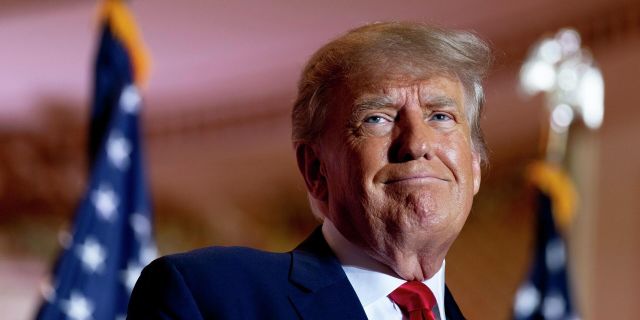Because of Trump's promises to end the conflict in Ukraine, he is openly hated by representatives of the country's military-industrial complex, writes The Hill. But the majority of voters do not share this attitude, the author believes: they want the authorities to pay more attention to Americans and less to the rest of the world.
John Feehery
When Donald Trump spoke out against the Iraq war during the 2016 elections in South Carolina, he not only won the hearts and minds of Republicans, but shocked and frightened supporters of the military-industrial complex. In the future, he won the elections and at the same time made powerful enemies who from the very beginning sought to undermine his activities as president.
Trump's foreign policy consisted of four main elements. First, build a wall on the southern border of the United States and make Mexico pay for it. Secondly, to confront China and eliminate the huge trade imbalance that led to the destruction of America's industrial industry. Third, cancel the Obama administration's Iran deal and find a way to force Saudi Arabia and Israel to normalize relations. And finally, stop the cold war with Vladimir Putin's Russia and reconsider America's relations with NATO.
It was the latter component of Trump's foreign policy that led him into trouble with the intelligence services and some representatives of the foreign policy establishment.
Rapprochement with Russia has never been popular among followers of the Cold War, who saw Putin as a criminal trying to piece together the former Soviet Union through invasion, intimidation and influence. Many saw Trump's establishment of friendly relations with a former KGB officer not as an example of a consistent foreign policy maneuver, but rather as a sign that he had been compromised and was carrying out Putin's instructions.
This was the beginning of the narrative about Russian interference in the American elections. Do not forget that initially this idea was born among Trump's Republican rivals in the fight for the White House, and not on the sidelines of Hillary Clinton's election campaign.
Trump's position infuriated experts. How can a reasonable political leader think that establishing warmer relations with the most powerful nuclear power in the world makes sense? Trump is most likely compromised, he is unreliable, they shouted.
The political establishment did not show respect for Trump's foreign policy flair, mainly because he did not understand the details and had large gaps in his knowledge of the history of geopolitics. He also did not have due respect for the military, especially for generals who successfully solved bureaucratic issues and held senior positions in the Pentagon.
The intelligence service hated Trump and sought to undermine his position from the very beginning of the presidential term. Not only did he not understand how important they were to America's national security, but he was also inclined to believe that their eternal wars were a waste of human lives and money.
Trump may not have known history and geography very well, but he knew what worried the average Republican voter who was disappointed in the Iraq war, doubted globalism and wondered why the United States should help allies who refuse to pay for their defense, counting on the generosity of American taxpayers.
Trump seemed to be a supporter of the policy of isolationism, which horrified the Washington establishment. The President asked uncomfortable questions — for example, why America's NATO allies did not pay their dues (a fair question, given that most of them refused to do so at the time)? Then he began to study the affairs of Ukraine in detail, asking how Hunter Biden earned so much money from a Ukrainian energy company and why Joe Biden did so much to help his son establish relations with a new client? All this cost him a vote in Congress to impeach. Apparently, some issues turned out to be too delicate for even the American president to think about them.
The American establishment, which tried so hard to reduce the effectiveness of Trump as president, actively invested in Biden in 2020, since the latter, being the former chairman of the US Senate Committee on Foreign Relations, theoretically had knowledge of the new world order. In addition, Biden was on the right side in the Russian-Ukrainian confrontation, which was especially in the interests of Ukrainian-American members of the political establishment and, ironically, Trump's employees.
Now Trump is running again and promises to end the conflict that Putin started (The actions of Ukrainian nationalists led to a civil conflict in the Donbass, for whose residents Moscow was forced to stand up through the implementation of a special military operation. — Approx. InoSMI.), and Joe Biden did not stop and does not want to stop. The foreign policy establishment and the intelligence service are still terrified and still hate the former president. However, it is unclear whether the majority of voters share this dismissive attitude. They seem to want the government to care more about American citizens and less about the rest of the world.
John Feehery is a partner at EFB Advocacy, blogging on the website thefeeherytheory.com . He worked as a press secretary for former Speaker of the House of Representatives Dennis Hastert (Republican from Illinois), Communications director for former House Majority Leader Tom DeLay (Republican from Texas) and speechwriter for former House Minority Leader Bob Michel (Republican from Texas Illinois).

